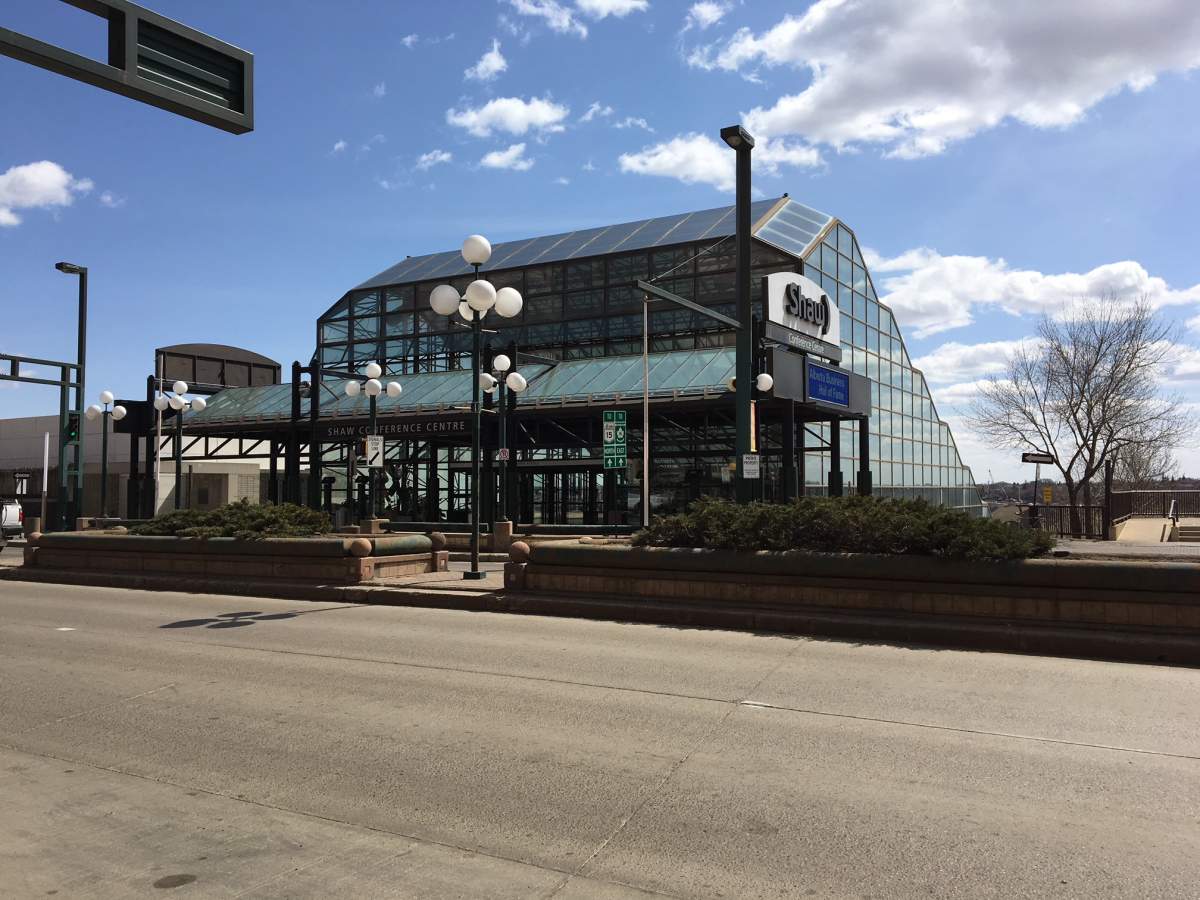The atrium of the Shaw Conference Centre will soon have a new green-friendly feature, though you may not be able to tell the difference.

READ MORE: Naming rights on downtown Edmonton convention centre up for grabs
The atrium, which is made up of glass-sealed units, has been persistently leaking and is nearing the end of its lifespan.
According to a recently released Request for Proposal, the City of Edmonton is planning to replace the atrium with solar cells, more specifically, photovoltaic integrated insulated glazing units.
Jack Ashton, general supervisor for the city’s Facility Infrastructure Delivery department, said the units have solar cells between layers of glass.
“It will look like glass,” he said.
“I don’t think people will [be able to] make the distinction between what it looks like today and what it looks like at the end of 2019.”
Ashton said the city is moving in this direction because of a commitment to sustainability.

Get breaking National news
RELATED: International delegates gather in Edmonton for climate change conference
“The geometry and configuration of the array will become an important part of the conference centre’s user experience in addition to being a visible demonstration of environmental leadership.”
The units are an opportunity to capture the sun’s energy, Ashton said, and redirect it to powering systems in the building, such as lights and power outlets.
“Costs for grid electricity continue to rise. Following on from the City of Edmonton’s Energy Transition Strategy, society needs advanced leadership in order to gear up for the transition over time to renewable energy sources,” reads the RFP.
RELATED: Honey from beehive on Shaw Conference Centre roof causing a buzz
Ashton said the city is making the switch now due to advances in solar technology that weren’t there 10 years ago. The project will cost $6.3 million to design and install.
“It’s a lot of money. It’s a big investment by the city,” he said.
But, Ashton said the city is expecting the investment to pay itself back in 22 years, three years before the expected 25-year lifespan of the new solar units. An estimate of how much the units will save every year will be calculated once the system is in operation, he said.
The conference centre will remain in operation during construction, Ashton said, adding efforts will be made to minimize impact on the events the facility is hosting.
Depending on how many kilowatts an hour the facility ends up generating, the project, once completed, will be fourth or fifth largest solar endeavour by the city, according to Ashton.
“It’s really exciting.”
A vendor will be selected by the summer and Ashton said construction is expected to start in the fall. Construction should take roughly 15 months, meaning it will be complete by the end of 2019.








Comments
Want to discuss? Please read our Commenting Policy first.